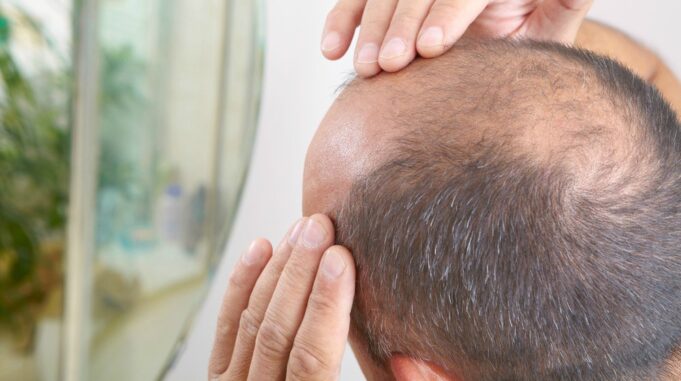A person’s hair tells a lot about who they are, and it is one of the first things others notice. But if you’re experiencing hair loss, a major component of your appearance is suddenly out of your control. This can lead to a dip in confidence that creeps into every facet of your life. However, accepting hair loss and your changing appearance is optional thanks to modern hair restoration treatments.
Most men will experience hair loss at some point in their lives, but today’s treatment options make recovery possible. Innovation and technology have made hair loss treatment more accessible and affordable than ever. Plus, individuals have options to treat and even slow hair loss based on their preferences and loss patterns.
1. Medication Designed to Slow Loss and Regrow Hair
Many individuals experiencing hair loss can blame their changing hairlines on genetics. However, a genetic predisposition doesn’t mean you can’t combat hair loss. It’s possible to see significant improvements in hair retention, especially when pursuing hair loss treatment early.
Topically applied Minoxidil can slow and even stop hair loss while stimulating new growth. Available in both foam and solution-based formulations, users apply the treatment directly to the scalp. This treatment works best on male pattern baldness, which is concentrated at the crown and center of the head. With consistent use, hair regrowth can increase by up to 35%.
Prescription Finasteride is an FDA-approved oral medication that prevents receding hairlines from worsening while boosting regrowth. By blocking the hormone responsible for male pattern baldness, Finasteride allows the body to return to its natural hair production. In clinical studies, those taking this medication saw a 90% effective rate, thicker hair, and improved hairlines.
Most medications require consistent use to maintain effectiveness. Speak with your provider about the medications that could work best for your hair loss pattern. Consider scheduled prescription delivery as a part of your treatment plan to ensure your medication use is consistent. This way, you’ll continue to see results, even when life gets busy.
2. Thickening Hair Products Designed to Improve Appearances and Nourish Hair
Many traditional hair products weigh down even the healthiest of hair and can even worsen the appearance of thinning hair. However, hair products designed to nourish thinning hair and the scalp can aid in healing and improve one’s appearance. Used alone or with medications, products designed for those experiencing hair loss can provide immediate benefits.
Thickening shampoos and conditioners strengthen strands thanks to ingredients like protein and collagen. Stronger strands can mean less breakage for thinning hair, which can be common with age and hormone-related changes. Ingredients like biotin and saw palmetto can help improve hair health long-term, meaning new growth will come in stronger, too.
Commercial hair styling products can contain dyes, fragrances, and ingredients that weaken delicate strands. Plus, those using firm-hold formulas may experience breakage, creating additional hair loss.
Products formulated for those with hair loss can be both gentle on tender strands and improve hair’s overall appearance. These products often share similar strengthening and thickening agents like biotin and saw palmetto. Other ingredients like caffeine and green tea have been found to increase hair root size and improve follicular health.
3. Lifestyle Changes to Reduce Hair Loss and Increase Treatment Effectiveness
An individual’s lifestyle choices and experiences influence their health and wellness. While some choices like smoking and poor nutrition are more commonly discussed concerning health, others are not. Many lifestyle factors and habits can lead to hair loss or worsen genetic predisposition. And, if lifestyle factors are not managed along with other treatments, they can reduce hair regrowth efforts.
Nutrition plays a vital role in one’s overall health, including follicular health, which is crucial for hair’s vitality. If follicles are weak, breakage is more likely, and growth can slow, even in those without hair loss. Practice a diet rich in vitamins and minerals like folic acid and vitamins B6 and B12. Researchers agree that an anti-inflammatory and antioxidant-rich diet can also support healthy hair growth. Following a Mediterranean diet full of lean protein, healthy fats, and vegetables can help simplify efforts and yield results.
Stress is often tied to many health problems, either as a single culprit to symptoms or one that worsens others. Review your lifestyle and stressors to determine how you can reduce any stress associated with work, life, and everything in between.
Establish healthy boundaries with colleagues, family, and friends to protect your personal time. Reduce screen time, and replace it with restorative activities you enjoy. Increase physical activity to improve your health and earn an endorphin rush, which can boost your mood and happiness. With less stress, you can maximize the effectiveness of your hair loss treatment and enjoy better health overall
Hair Loss Doesn’t Have to Be Part of Your Story
Your predisposition to hair loss doesn’t mean your hairline has to match your father’s. With proactive treatment, lifestyle improvements, and consistency, you can stop hair loss and regrow your hair. Consult with a trusted provider today to identify your loss patterns and design a customized treatment plan. Together, your medications, products, and behavior changes can have your hair looking fuller and healthier in just a few months.












